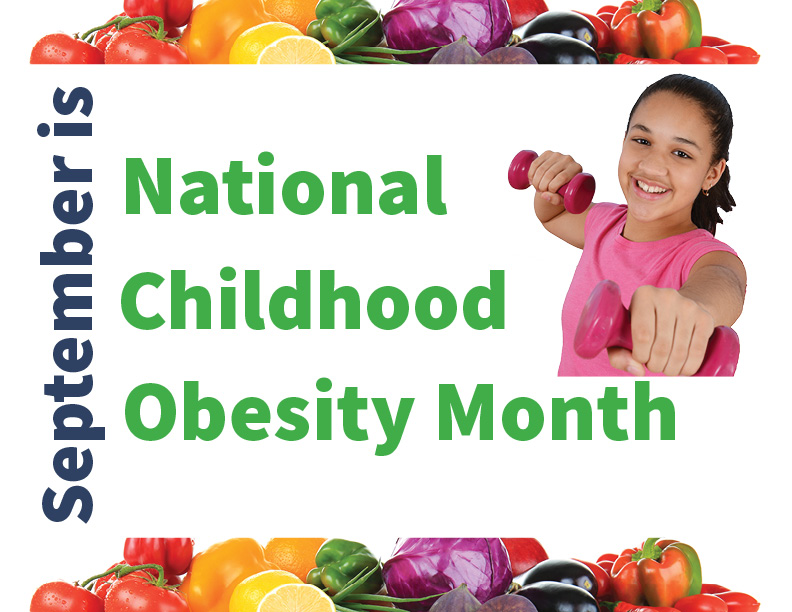Childhood Obesity Awareness

September is Childhood Obesity Awareness Month! Here’s an article with tips and treatment options for parents to keep their kids happy and healthy.
The prevalence of childhood obesity has increased dramatically over the last 40 years. According to the World Health Organization (WHO), obesity has nearly tripled between 1975 and 2016. An estimated 4% of children were overweight or obese in 1975. In 2016, as many as 18% were overweight or obese – more than 124 million children globally. Obesity in children is caused from a variety of factors including genetic background, developmental programming, and environmental influences. Environmental influences include sleep deprivation, stress, appetite-stimulating medications, types of nutrients we consume in our diet, and lack of physical activity. Community factors that contribute to the growing epidemic include lack of access to healthy, affordable food options (food deserts) and neighborhood design – such as walkability and access to parks, green spaces, and other areas for physical activity. Childhood obesity has been associated with increased risk of cardiac disease, hypertension, Type 2 diabetes mellitus, sleep apnea, polycystic ovary syndrome, and fatty liver disease. It has also been associated with low self-esteem and depression.
Treatment of childhood obesity starts with lifestyle modification. There has been no single nutrient implicated in the development of obesity. Rather, a combination of approaches may benefit a child who is struggling with obesity. Families should work to reduce consumption of processed foods and increase consumption of whole foods. Dietary recommendations vary depend on child’s age. Paying attention to portion sizes is critical and may be guided with the assistance of a dietician. The Mediterranean Diet has been associated with lower risk of obesity and is characterized by a diet rich in fruits, vegetables, olive oil, beans, nuts and legumes. A typical Western diet is more closely associated with higher intake of red/processed meat, sweets, refined grains, and high fat dairy foods. Children should who struggle with obesity should avoid of all sugar-filled beverages including juice and soda. Families should try to sit down at the table together during mealtime if possible. Meals should be free of distraction from electronic devices including the television. No food group should be removed from the diet unless a child has food allergies, celiac disease, or other dietary requirements as recommended by a medical professional.
Second-line treatment is anti-obesity medications. There are ongoing trials currently looking at the efficacy of these medications. Third-line treatment includes pediatric bariatric metabolic surgery and a possible role for endoscopic bariatric procedures.
Treatment is a staged approach that involves consideration of numerous factors including patient’s age, body mass index, and medical history. The various stages involve working with a primary care physician, dietician, community-based weight management program, or a tertiary pediatric weight management program. Childhood obesity is a complex disease that requires intervention to prevent lifelong health consequences. If your child is struggling with obesity, please reach out to your primary health care provider for a further management with a possible referral to a weight management specialist.

